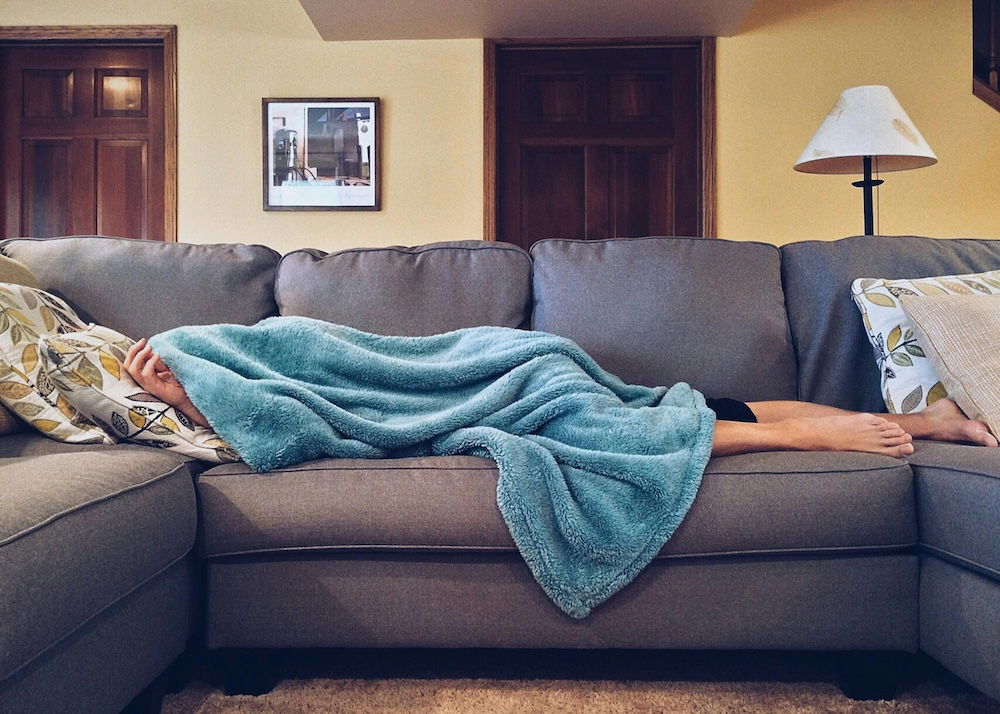“I can’t sleep” is something you wish you never had to say. What a pain it is when you’re trying to fall asleep at night but end up staring at the ceiling instead. Whatever you do, you just can’t fall asleep… If you suffer from sleep problems and need some tips on how to get a good night’s sleep, look no further. We’ve put together a list of the most effective tips.
“I can’t sleep” – how to solve your sleep problem!

A bad night’s sleep affects your life
A good night’s rest is essential for your health. If you don’t sleep you’ll feel tired and sluggish during the day. This affects your health, achievements and happiness.
Not sleeping well truly affects your life, more so than just ‘feeling a bit tired’. When you don’t get enough sleep you wake up not feeling rested. You can hardly keep your eyes open and it feels like you’ve only slept for a couple of minutes.
During the day you’re tired and running low on energy. As a result you’re easily annoyed, aren’t able to concentrate and feel negative. You’re susceptible to stress and probably not that much fun to be with, according to your colleagues and family.
Then at the end of the day, when you’re finally lying down in bed, you have trouble falling asleep. You’re tired but you can’t fall asleep. You are now in what we call a vicious circle.

“I can’t fall asleep…” Here’s what you can do about it!
A good night’s rest is important. But how do you make sure that you sleep well? Get your sleep back with the following tips!
1. Create a comfortable sleep environment
The temperature of your bedroom is important. Make sure you are not too cold, but certainly not too hot. Are you sweating? Open a window (yes, even during winter) to ensure that you get enough fresh air and a bedroom temperature that’s just right. It’s a good idea to turn off the heating in the bedroom.
In addition, make sure you have a nice clean bed, a comfortable mattress and a good pillow. Be kind to yourself and make it as comfortable as possible. Chances are you will fall asleep like an angel as soon as your head touches the pillow.
2. Prepare for the night
What you do before you go to bed has a big impact on how you sleep. For example, are you still working on your laptop until late at night? Or do you take your cell phone to bed so you can scroll through Instagram for a while?
Instead, get ready for the night. Stop drinking coffee after 3 pm (caffeine can stay in your system for a long time - at least 6 hours -) and try to cut off screen time one hour before going to bed. Take a nice warm bath, read a book or listen to music.
Make it an evening ritual that you can perform every night. As soon as you start your ritual, your body slowly prepares itself for the night and you will feel more relaxed.
3. Can't sleep? Whatever you do, stay calm
We've all had times when we really wanted to sleep, but just couldn’t fall asleep. It’s even more annoying when you have an important meeting or exam the next day. No wonder the keywords "I can't sleep" get searched on Google a couple of times a night.
If this happens, try to stay calm. Do not panic or stress, otherwise your body will produce cortisol and you will stay awake and alert. And you don't want that to happen! So try not to think about not being able to sleep and don’t try too hard to fall asleep.
Instead, accept the fact that you're still awake and stay calm. You’ll notice that you will fall asleep faster than if you were to panic and desperately start counting sheep. Try turning on soothing music that calms your thoughts and body.
4. Turn on a sleep meditation
One way to remain calm is to turn on a relaxing sleep meditation. Meditation improves the quality of your sleep. A sleep meditation will help you sleep better and deeper. When you give your body a complete rest (both physically and mentally) you put all the impressions of the day aside and start the night relaxed. Every part of your body comes to rest.
This way you start the night much more relaxed and you sleep better and longer. You learn to deal with unwanted thoughts that would otherwise keep you awake.
Meditation also ensures a better night's sleep in the long run. Regular meditation increases the sleep hormone melatonin in your body, which helps you fall asleep faster and better. And sleeping better at night also has an effect during the day! You’re more energetic and well-rested.
Do you suffer from a sleep problem such as sleep apnea or insomnia? Always consult with a medical specialist or sleep expert. Meditation can help with sleep problems, but it should not be seen as a substitute for medical advice.
Why meditate when you can't sleep?
Meditation allows you to focus your attention on one thing. Your breath, a voice, an object... Every time your mind wanders, you bring your attention back. Eventually you notice that the thoughts running through your mind are no longer annoying but simply float by like little clouds.
This is how you ‘train’ your brain. In fact, the brain changes when you meditate regularly. People who meditate have less brain activity in the areas related to anxiety and depression and more brain activity in the areas related to pain tolerance.
In addition, you train your brain to be less concerned with thoughts about the past or the future and to be more in the present moment. This makes you feel less distracted and less susceptible to stress. You feel good all over and are able to sleep better.

















